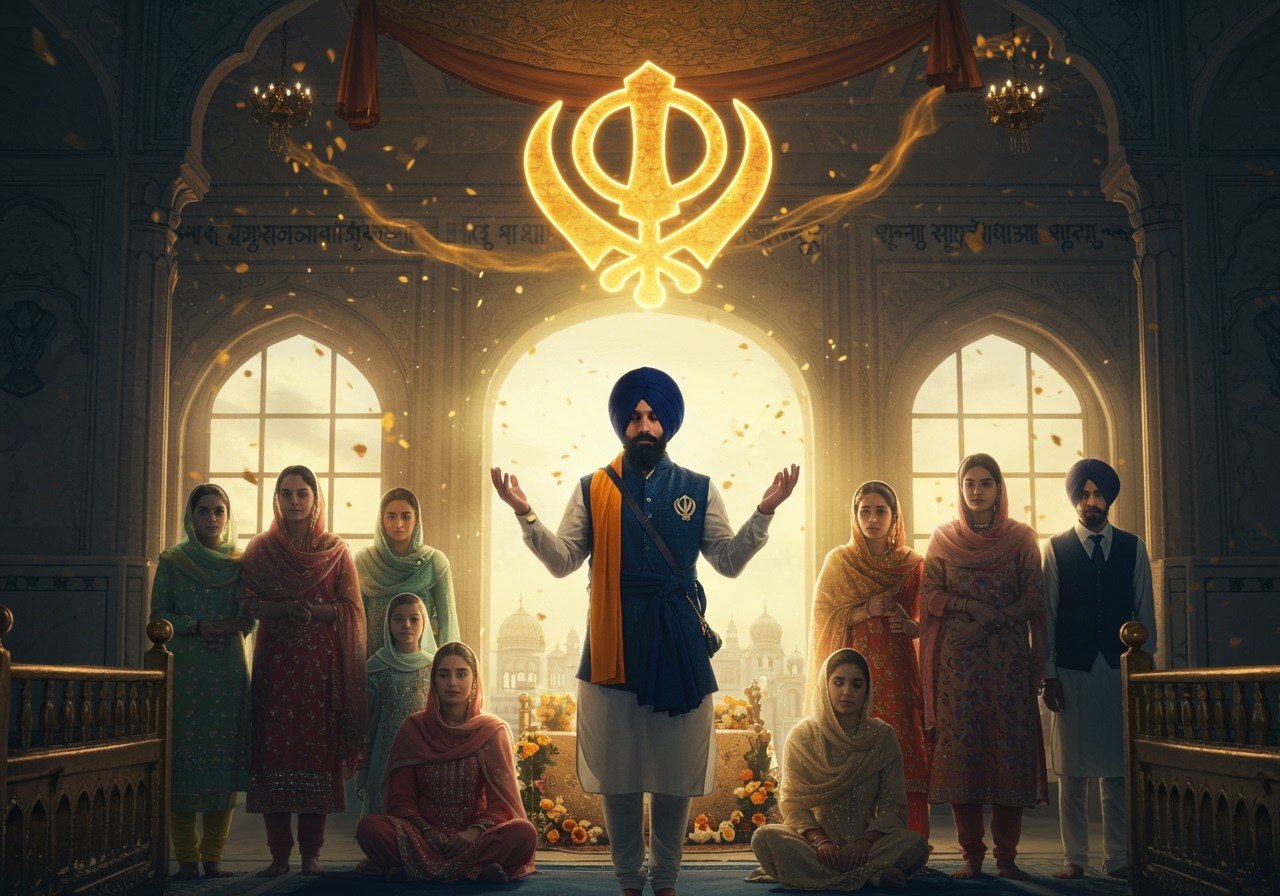
Ardās holds a truly special place in Sikhism. It’s more than just a prayer; it’s a deeply personal conversation with the Guru and Waheguru, filled with centuries of tradition and profound meaning. Let’s explore the significance of Ardās and how it resonates in our lives today.
Understanding Ardās
Ardās comes from the Persian word “Arazdashat,” meaning a request to a higher power. It’s a heartfelt plea to Waheguru for guidance, strength, and blessings. It’s also a way to express gratitude for all that we have. Ardās reminds us of our commitment to living a virtuous life and connects us to the inspiring figures of Sikh history.
- A Humble Request: We ask Waheguru for support and help in our journey.
- Seeking Protection: We appeal for protection and care for ourselves, our loved ones, and all beings.
- A Prayer for All: We pray for the well-being and prosperity of all mankind.
Ardās fosters humility and brings peace to the mind. Through this beautiful prayer, Sikhs give thanks for everything and seek the betterment of humanity. For those seeking to deepen their spiritual practice, poojn.in offers a range of pooja samagri to enhance your prayer experience.
Ardās in the Modern World
As our world changes, so too does the way we connect with our faith. Let’s explore some common questions about Ardās in today’s context.
Can you recite Ardās in English?
Traditionally, Ardās is recited in Punjabi, a language deeply intertwined with Sikh heritage. However, as Sikh communities have blossomed across the globe, reciting Ardās in English has become increasingly common. This allows those unfamiliar with Punjabi, particularly younger generations and diverse communities, to connect with the prayer’s meaning.
- Bridging the Language Gap: English makes Ardās accessible to a wider audience.
- Maintaining the Essence: While some believe translating may dilute the cultural richness, the core message and sincerity remain paramount.
Sikh scholars emphasize the importance of preserving the Punjabi language due to its historical and spiritual significance. However, English translations have found a place in diverse settings, showcasing the adaptability of this sacred prayer.
Can you perform Ardās at night?
Absolutely, you can offer Ardās at night. Unlike some faiths with specific prayer times, Sikhism offers flexibility. Ardās can be performed whenever your heart calls for it, day or night.
- Anytime, Anywhere: Whether it’s the quiet of the night or the bustle of the day, connect with Waheguru whenever you feel the need.
- Personal Connection: Many find solace in performing Ardās at night, finding a moment of peace and reflection before sleep.
This adaptability embraces the diverse lifestyles and schedules of the global Sikh community.
How long does Ardās typically last?
The length of Ardās can vary. Personal prayers may be brief, while communal Ardās, especially during special occasions, can be longer. This flexibility allows it to fit seamlessly into our daily lives.
- From Short to Extended: A quick prayer for guidance or an extended version for special occasions, Ardās adapts to the situation.
- A Blend of Structure and Flexibility: It combines set verses with personalized additions.
A short Ardās might take just a few minutes, while a longer one during a wedding or festival could extend to twenty minutes or more.
When is Ardās typically performed?
Ardās is an integral part of Sikh life, woven into many personal and communal occasions. It is often recited at the beginning and end of religious services and during significant life events.
- Daily Rituals: Including morning and evening prayers (Nitnem).
- Life’s Milestones: From naming ceremonies and weddings to funerals and moments of gratitude, Ardās marks significant transitions.
It’s a source of strength in times of decision-making and an expression of thankfulness during joyous moments. Enhance your daily prayers with authentic clay diyas and other ritual items available at poojn.in.
The Cultural Significance of Ardās
Ardās goes beyond the words themselves; it’s a powerful expression of connection, belonging, and shared values within the Sikh community.
- A Global Community: Ardās unites Sikhs around the world, fostering a sense of belonging, especially for those living far from their ancestral homes.
- Living Values: It embodies core Sikh principles of humility, equality, service, and devotion to Waheguru.
Ardās reminds us of the continuous effort required to be better individuals and strengthens our bond with the rich history and legacy of Sikhism. Find beautiful dhotis at poojn.in, perfect for your religious ceremonies.
Embrace Ardās in Your Life
Whether recited in Punjabi or English, in a gurdwara or the quiet of your home, Ardās is a timeless source of strength and unity. Its adaptability ensures it remains a cherished practice for generations to come. As we embrace this sacred prayer, we honor our heritage and carry its values forward. Through Ardās, we discover peace, purpose, and a profound connection to the global Sikh community.
Looking for Ardās essentials? poojn.in offers a wide selection of high-quality products, including Kesri (Saffron) colored cloth, Gutka Sahib, prayer mats, and more. Visit www.poojn.in or call us at 03369029784 to learn more. We offer free shipping across India on orders above ₹499.


